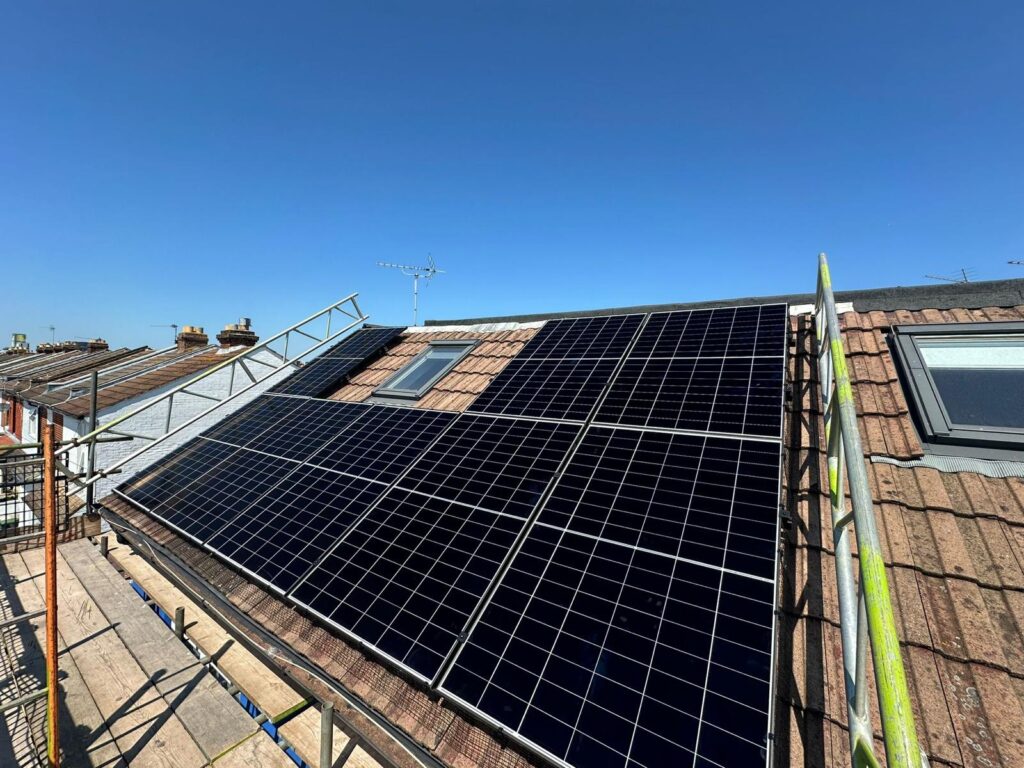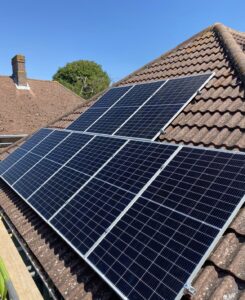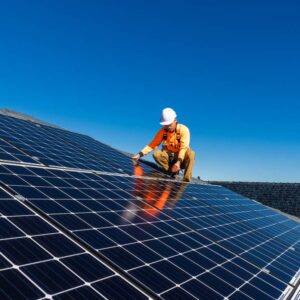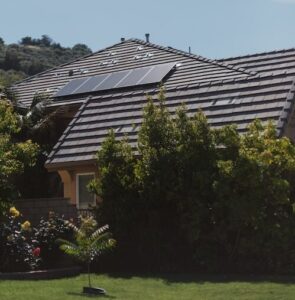Introduction
With rising energy costs and new technology entering the UK solar market, many homeowners are asking the same question – are solar panels still worth it in 2025? And is the Solar panel ROI good? The short answer: absolutely, yes – but your savings depend on your usage, roof type, and whether you include a battery. In this guide, Solar Voltaics breaks down the latest data on costs, payback times, and government incentives to help you decide if solar is the right move for your home or business this year.
1. The Current Cost of Solar Panels in the UK (2025 Update)
In 2025, a typical 4kW domestic solar panel system costs around £5,000–£7,000, depending on equipment quality and installation type. For commercial systems or schools, costs per kW are generally lower due to scale.
💡 Tip: Prices have fallen significantly over the past decade, but the efficiency and output of modern panels – such as AIKO 510W or Trina 450W modules – have increased.
Energy Saving Trust – Solar Panels Cost (https://energysavingtrust.org.uk/advice/solar-panels/)
Domestic Solar Panel Installation – Solar For Homes
2. What About Energy Prices?
With UK energy prices remaining volatile, generating your own electricity offers long-term stability. In 2025, typical household electricity rates are around 30p per kWh, meaning every unit you generate yourself directly offsets that cost.
Even better – any excess energy you don’t use can be sold back through the Smart Export Guarantee (SEG), where suppliers pay around 4–20p per kWh exported.
Ofgem – Smart Export Guarantee (https://www.ofgem.gov.uk/environmental-and-social-schemes/smart-export-guarantee-seg)
Domestic Battery Storage – Solar Voltaics
3. Solar Panel ROI and Payback Period
A well-designed solar system pays for itself in around 6–10 years, depending on consumption and export rates. Adding a battery system, such as the Tesla Powerwall 3, can reduce payback time further by maximizing self-consumption – especially if you’re on a time-of-use tariff.
Example:
– Average system cost: £6,000
– Annual savings: £700–£1,000
– SEG income: £100–£200
= 7–8 years payback on average
External reference: GOV.UK – Renewable Energy Guidance (https://www.gov.uk/)
Tesla Powerwall Battery Storage – Solar Voltaics Ltd
4. Environmental Benefits Still Matter
Each 4kW system offsets around 1 tonne of CO₂ per year – equivalent to planting 45 trees annually. Schools and businesses adopting solar are also improving their ESG (Environmental, Social, and Governance) ratings and sustainability credentials.
External reference: MCS Certified – Environmental Benefits of Solar (https://mcscertified.com/homeowners/solar-pv/)
5. So, Are Solar Panels Worth It in 2025?
✅ Yes, because electricity costs are high and solar technology has never been more efficient.
✅ Yes, because battery storage maximises savings.
✅ Yes, because you’re future-proofing against rising grid costs while cutting emissions.
If you’re in the UK and have an unshaded roof, there’s almost always a financial case for installing solar – and a strong environmental one too.
Final Thoughts & Next Steps
Solar panels in 2025 aren’t just worth it – they’re one of the most reliable long-term investments for homeowners and businesses alike. If you’re ready to explore your options, our design team at Solar Voltaics can provide a free system quote and energy savings estimate tailored to your property.
Get a Free Solar Quote Today → Contact Us – Solar Voltaics Ltd




